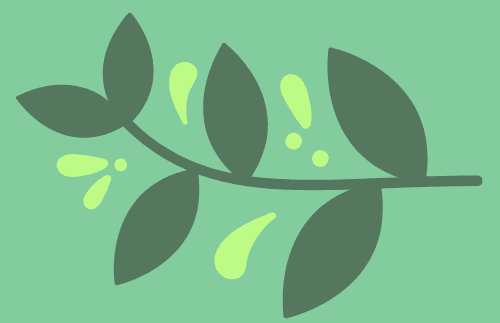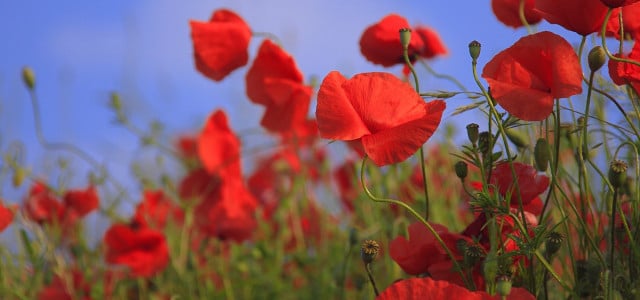
Corn poppy is a real eye-catcher because of its red petals. In this article you will learn how to properly water, plant and care for corn poppy.
The corn poppy gets its name from the thin flowers that clap together in the wind. In nature, the annual poppy grows primarily in fields and cornfields. The bee-friendly plant is native to North Africa, Asia and Europe and blooms from May to July.
Contents
How to plant corn poppy
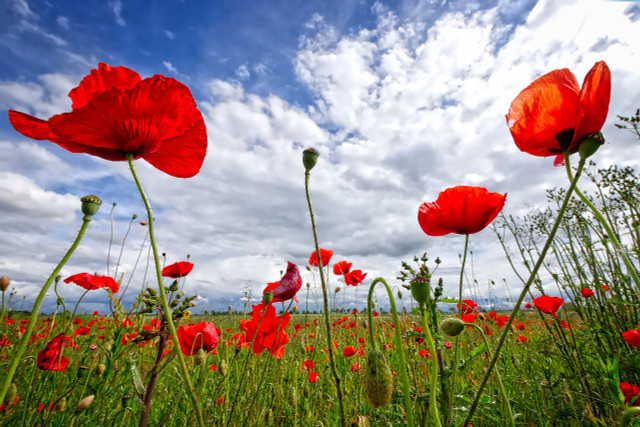
If you want to admire corn poppy not only in the field, but also in your garden, you can resort to seedlings or sow organic seeds. To ensure that the plant takes root quickly and thrives, you should follow these tips:
- Plant generously: Whether you use the corn poppy as a seedling or sow it, you should plant as many plants as possible in the soil. This is because the individual poppy plants only bloom for a few days.
- The right time: You can plant the seeds directly in the garden in March and April. The poppy is a light germinator, so you should only press the seeds lightly and not cover them with soil. March to April is also the best time to plant the seedlings.
- The right location: Full sun is no problem for the corn poppy, because it loves it warm and sunny. In a sunny location, the poppy also sprouts particularly colorful flowers. Since the flowers of the corn poppy fall off quite quickly, you should plant it together with other ornamental plants such as roses or cornflowers, which will then fill in the gaps. If you want to create a meadow of wildflowers, the corn poppy will also fit in especially well.
- The right soil: Low-nutrient, well-drained soil is best for the corn poppy. If you mix some sand and gravel into the soil, you can ensure that very firm soil is loosened and that watering the poppy does not cause waterlogging.
Watering the poppy correctly
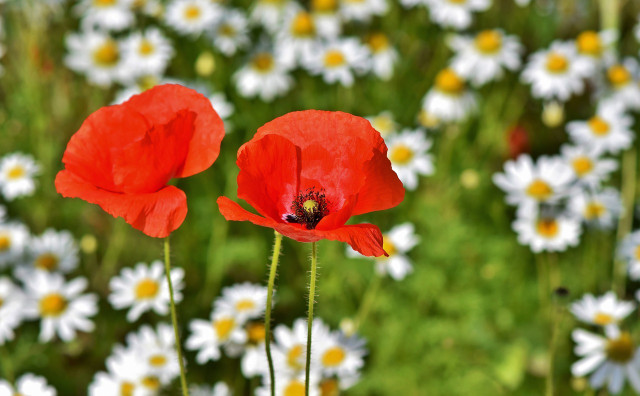
Corn poppy needs very little water and prefers it dry. Therefore, you should not really water the plant at all – rainwater is usually enough for it. Only when poppies bloom during an extreme heat wave can you give them a little water.
You should water the seeds regularly in the beginning, as the plant needs more water during the growth phase.
Proper care for the corn poppy
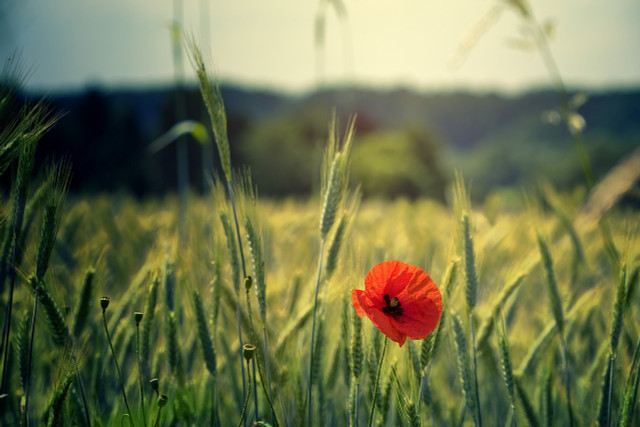
Because you rarely need to water corn poppy, it’s a very low-maintenance plant and is well-suited for natural gardens. To make the flowers feel right at home, however, you should heed these care tips:
- Fertilize the corn poppy: You only need to fertilize the poppy very little. It is best to use natural things like nettle manure or coffee grounds. With this you can promote the growth of the plant.
- Cutting: If you want to put the poppy in a vase as a cut flower, it is best to cut the flower while the blossoms are still closed and slowly taking on color. That way they will last the longest.
- Propagation: After the poppy has faded, you can let the seed pods mature. In this way, the plant will reproduce on its own. You can also carefully collect the seeds and sow them again next spring. After that, you can pull out the annual poppy plant and dispose of it in the compost.
- Pests and diseases: If there is a lot of rain and moisture, the corn poppy can get poppy blight. This disease is caused by bacteria and makes the leaves blotchy and brown. Unfortunately, you can only separate sick plants from healthy poppies as quickly as possible. As a precaution, place the young plants at a sufficiently large planting distance, so that the poppy dries faster after a rain shower and is spared from the disease. The poppy is also susceptible to spider mites and aphids. Against the aphids helps spraying the plants with nettle manure, while spider mites you can best bkekämpfen with neem oil.
